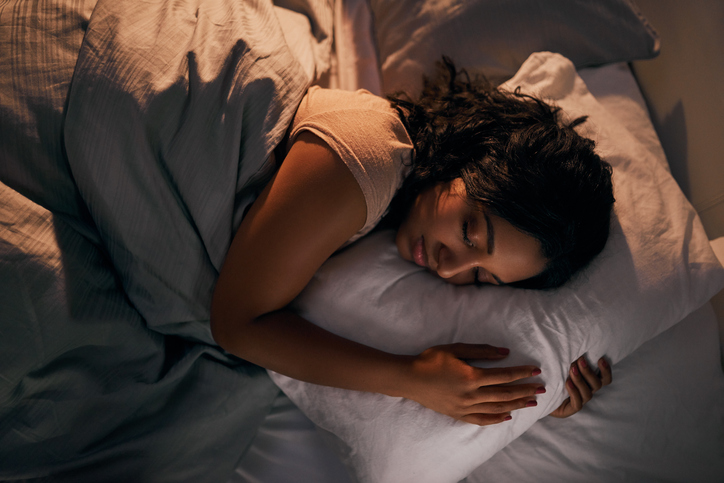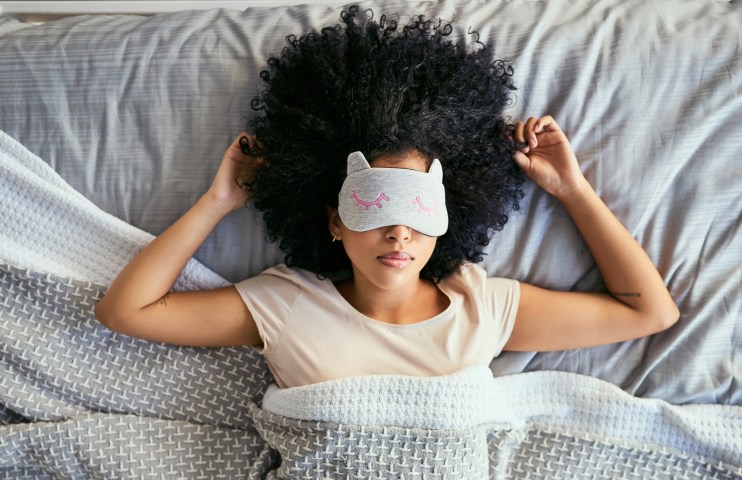How to age well

In an ideal world, we’d all have a great night’s sleep, every night. The reality is that’s unlikely to happen, particularly as we get older. But there are plenty of simple, effective tricks to try to help us get more shut-eye.
Ten Ways to Sleep Well to Age Well Every Night
1.Set an alarm at night
We’re all familiar with a morning alarm, but what about an evening one? Set an alarm each evening to tell you to turn down the lights, finish what you’re doing and start your night-time routine. Work out what time you want to set your evening alarm for each night. It needs to go off at the same time each evening.
2.Be strict on a daily digital detox
The digital, electronic world is one of the roots of the current global sleeplessness epidemic. An evening spent staring at a screen, scrolling through social media or bingeing on box sets disrupts sleep in many ways. Try a mini digital detox each evening with no screens for at least an hour before bed.
3.Seek silence
Excess noise – from roads, flight paths, city living and electrical devices – reduces life expectancy by up to three years. At night, noise enters our ears, even as we sleep, and passes through the cerebral cortex (the outermost layer which surrounds the brain), rousing us enough to increase blood pressure and disturb our circadian rhythms. Evaluate how noisy your sleep environment is and what you might be able to do about it – using earplugs may help you to sleep better.
4.Use aromatherapy
Getting to sleep involves all our senses. And drifting off in a beautifully scented room is one of life’s great pleasures. A few drops on the pillow is all it takes. Try one or all of these:
- Lavender oil to aid sleep and reduces stress.
- Valerian oil to help you fall asleep faster and improve sleep quality.
- Bergamot oil to slow your heart rate, lower blood pressure and reduce anxiety and stress.
5.Breathing through a broken night
If you find it difficult to get to sleep use this breathing exercise to help you nod off. Place the tip of your tongue against the ridge of tissue just behind your upper front teeth and keep it there through the entire exercise.
- Exhale completely through your mouth,
- Close your mouth and inhale quietly through your nose to a mental count of four.
- Hold your breath for a count of seven.
- Exhale completely through your mouth, making a whoosh sound to a count of eight.
- This is one breath. Now inhale again and repeat stages 1 to 4 three more times for a total of four breaths. Do the whole cycle four times (making 16 breaths in total).
- If you feel short of breath – breathe normally!
6.How to eat to sleep
Certain vitamins and minerals aid sleep. Make sure you are including the following in your diet:
- Vitamin B6 helps the body to make the vital sleep hormone melatonin. Find it in sunflower seeds, tuna and wild salmon, avocado, chicken, cooked spinach, bananas, potatoes, whole grains and prunes.
- Magnesium is a key nutrient for sleep and many women in particular are deficient. Find it in almonds, leafy greens, bananas and fish.
- Vitamin E appears to help protect the brain from memory loss associated with sleep deprivation. Find it in nuts and seeds, as well as spinach, broccoli, tomatoes, avocado and wheatgerm.
- Vitamin B12 helps to regulate the sleep–wake cycle by keeping our circadian rhythms in sync. Find it in meat, dairy, eggs, fish and shellfish. (If you’re taking a supplement, take it in the morning.)
7.How not to eat to sleep
Once melatonin production has begun in the evening, the body struggles to produce enough insulin to deal with blood sugar spiked by a heavy evening meal. The two hormones don’t coordinate well. Try to eat several hours before bedtime so that insulin can do its work before melatonin production kicks in. and avoid foods containing tyramine, a brain stimulant, in your evening meal such as aubergine, chocolate, fermented/cured foods, pineapple and tomato.
8.How to drink for sleep
Ditch the afternoon, or evening, espresso in favour of a herbal tea. Try a small, strong cup of one of these teas, or make a blend, before bed:
- Camomile
- Valerian root
- Passionflower
- Lavender
9.How not to drink to sleep
Alcohol might make you feel sleepy, but it negatively affects the quality of sleep so keep tabs on your alcohol intake: a small glass of wine with an early dinner is fine, but no nightcaps please.
Caffeine can stay in the body for many hours after it’s consumed. Depending on how quickly you metabolise coffee, a cup in in the afternoon could jeopardise sleep. For most people, caffeine has a half-life of six hours and a quarter life of 12 hours, so if you have a cup of coffee at midday, one quarter of that cup is still in your system at midnight.
10.Read a book
Just six minutes of reading a book reduces stress levels by 60 per cent, and as stress is one of the key sleep disruptors, it’s worth a try! Read in bed for a few minutes every night, but nothing too stimulating, a page-turning thriller or gripping murder mystery might not have the right effect.
The Age-Well Project dived deep into the science of ageing well, and authors Annabel and Susan explained how they overhauled their own lives to prioritise healthy longevity.
In The Age-Well Plan, Susan draws on almost a decade of extensive research into healthy longevity and her experience as a health coach to give you the tools you need to live your own age-well life. Her simple, clear and easy-to-follow six-week plan will show you how to make changes -- small and large -- to support healthy ageing, and prioritise the changes most appropriate for your body, lifestyle and circumstances.
The first week of the plan guides you to understand your goals as you age and explains how to evaluate your current health and risk factors, in order to devise a bespoke plan for your body and brain. The subsequent weeks focus on the key elements of healthy ageing -- diet, exercise, sleep, engagement and the environment -- to help you build a personalised plan that will kickstart your age-well life.








